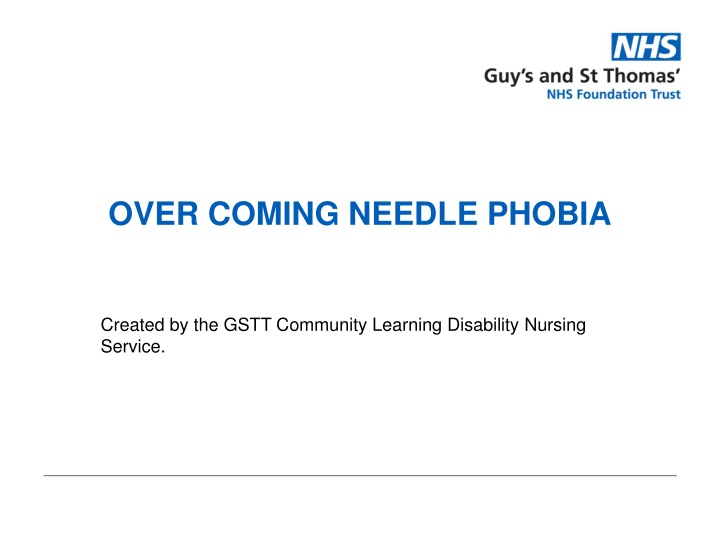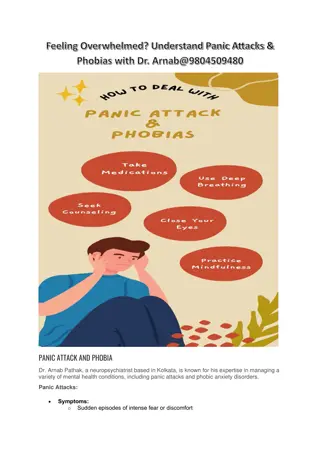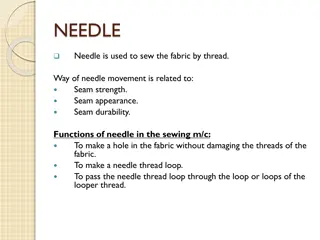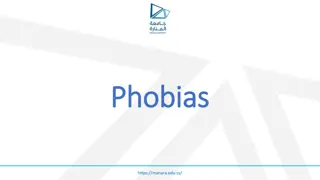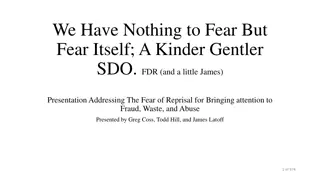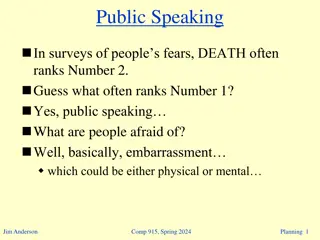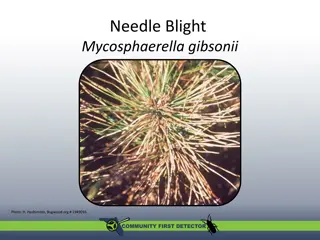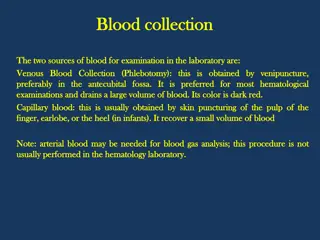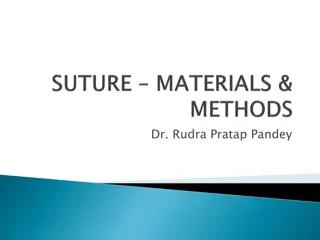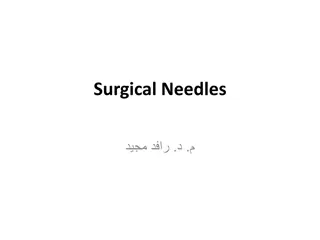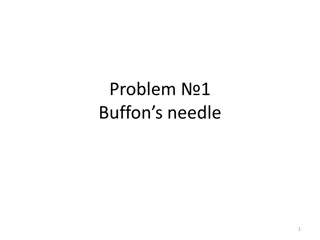Overcoming Needle Phobia: Strategies for Managing Fear of Needles
A needle phobia can make receiving injections a distressing experience. This resource, created by the GSTT Community Learning Disability Nursing Service, provides insights into needle phobia, consent principles, desensitization techniques, relaxation strategies, and distraction techniques to help individuals cope with their fear effectively.
Uploaded on Sep 09, 2024 | 0 Views
Download Presentation

Please find below an Image/Link to download the presentation.
The content on the website is provided AS IS for your information and personal use only. It may not be sold, licensed, or shared on other websites without obtaining consent from the author.If you encounter any issues during the download, it is possible that the publisher has removed the file from their server.
You are allowed to download the files provided on this website for personal or commercial use, subject to the condition that they are used lawfully. All files are the property of their respective owners.
The content on the website is provided AS IS for your information and personal use only. It may not be sold, licensed, or shared on other websites without obtaining consent from the author.
E N D
Presentation Transcript
OVER COMING NEEDLE PHOBIA Created by the GSTT Community Learning Disability Nursing Service.
Contents What is a needle phobia? Consent Preparing for desensitisation Relaxation strategies Distraction techniques Social stories
Needle Phobia A needle phobia is when people have an intense fear about needles and having injections. There may be identifiable reasons for this e.g past negative experience, poor support, lack of explanation etc There may be no obvious reason. This might manifest itself as avoidance of situations where the person might be asked to have an injection e.g. GP surgery, clinic. Associations might be made with specific healthcare professionals. Effects on person, distress, upset, aggression, poor healthcare etc
Consent Apply the principles of the Mental Capacity Act, 2005. Support person to understand what the process involves and the implications for refusing it. If the person is assessed as not having capacity to make the decision then a best interest decision should be made in line with the Mental Capacity Act. Consider use of Equalities Act 2010 and reasonable adjustments e.g. need for specialist professionals such as AWLD team, GP, Acute Liaison Nurse, MHLD team. Consider if personalised desensitisation required. Balance health need against risk; consider if sedation required (best interests)
Preparing for needle desensitisation Ask the person how they feel. Reassure them that their anxiety will not get in the way of their treatment. Allow the person to ask questions regarding the procedure. (This will help to reassure them that nothing bad is going to happen). Ask person if they want someone to be with them Ask person if they want someone to talk to them during the procedure. Ask person if they prefer quiet. Ask person if they want someone to hold their hands.
Relaxation strategies Refer to needle phobia and relaxation guidance on GSTT Intranet. Use breathing exercises. Ask person to sit in a comfortable position, relaxing jaws and shoulders. Take a long, slow, deep breathe in and breathe slowly through the mouth. Repeat 5 times. Build up gradually to facing fear; enlist support of health professionals.
Distraction Techniques Listen to favourite music Read a book or magazine Play games on their phone or tablets. Watch video on iPad Talk to somebody Hold hands Counting 1-100 Recite songs or rhymes
Useful resources and services https://www.guysandstthomas.nhs.uk/resources/patient-information/all- patients/overcoming-your-fear-of-needles.pdf Reading/article . Brief Guide: Overcoming blood and needle phobias and medical anxiety. www.haemochromatosis.org.uk Social stories (Blood tests for people with learning disabilities: making reasonable adjustments. (2017). Public Health England, protecting and improving the nation s health. www.gov.uk/phe) Consent: https://www.youtube.com/watch?v=2DsuasWObWw Adults with Learning Disabilities Health Teams (Lambeth, Lewisham and Southwark) : gst-tr.AWLDHealthTeam@nhs.net
